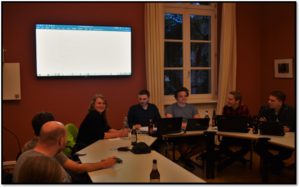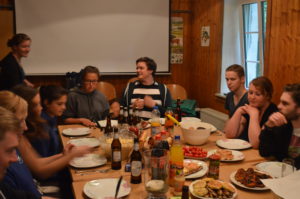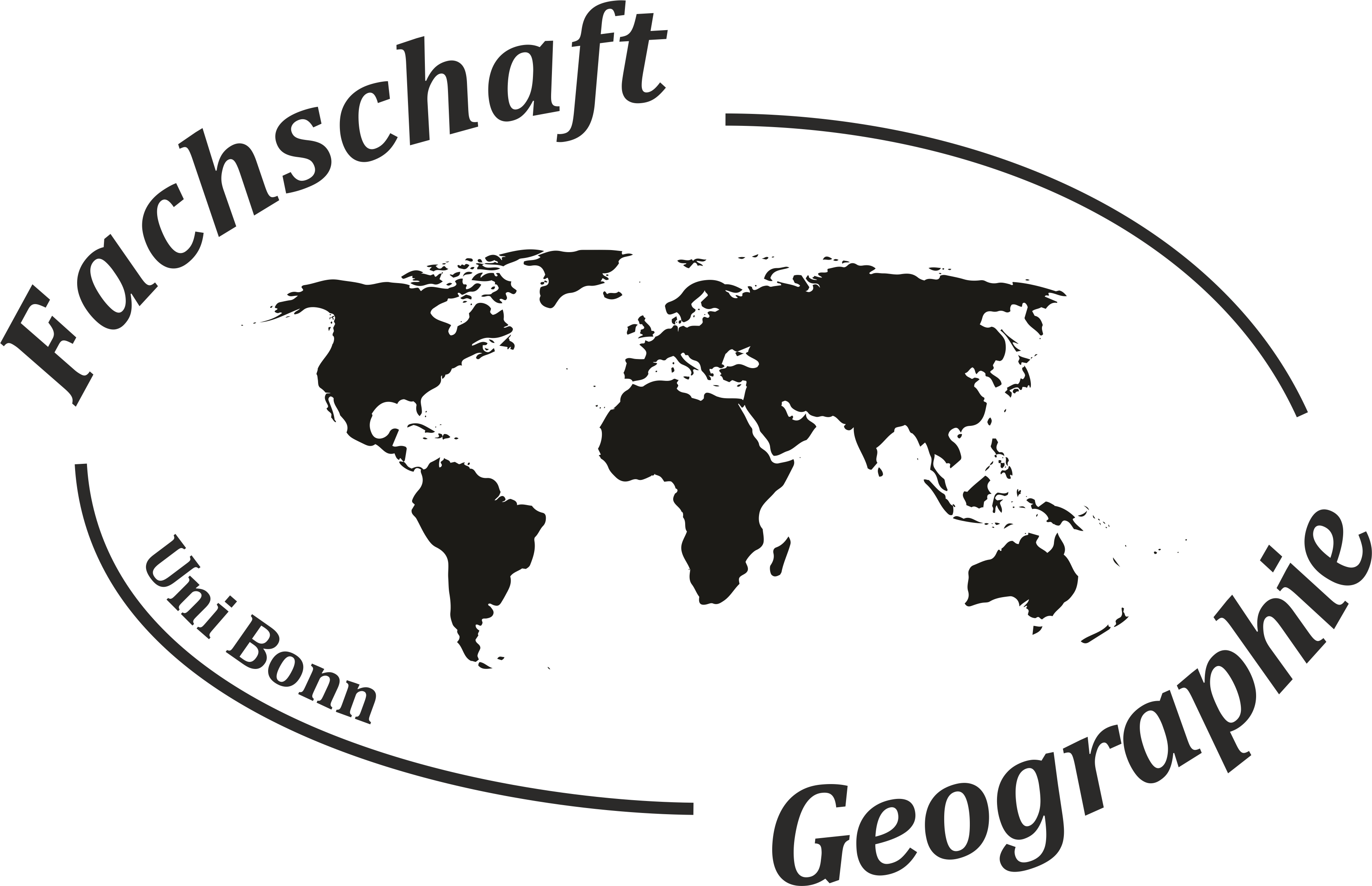About us
Student council – who is that? What do they do? This question is not so easy to answer. We are a motley crew of students from all semesters.
Once a year (usually in July), elections are held at the Institute of Geography to elect the fifteen members of the student council. These fifteen members in turn elect the offices of the student council (two chairpersons each, spokespersons, financial officers and secretaries).

Student council meeting in the Red Hall
The most important regular meeting of the student council is the student council meeting, which takes place every Tuesday from 8 pm in the Red Hall (Room 116). The meeting is chaired by the two chairmen and at it all matters of current importance are discussed, from A for AFSG application to Z for cooperation with other student councils. As the range of topics is very wide, there is a separate agenda for each meeting, which all student council members receive in advance by e-mail. The individual agenda items are discussed, debated and sometimes voted on. Our meetings are open, if you drop by you are entitled to participate in the debates and also vote from the very first minute.
The opening hours of our student council room are also regular, namely Monday to Thursday from 12:00 to 13:00 (on Tuesdays during the lecture-free period from 11:00 to 13:00). There we will advise you in all matters concerning your studies. Furthermore, you can recharge your printer’s credit and find scripts and a wide range of information material. Come by!
Another important aspect of our work takes place in the commissions in the institute and beyond. From the institute’s board of directors to the department of earth sciences and the library commission, we represent student interests and are therefore your voice in the committees where important decisions about the future of GIUB and the university are made. So if you think that an aspect of the institute’s life or study conditions should be improved decisively, you can also participate in our committee work. If you want to know which committees are important to you and who represents you there, click here.

Geography can do more: Opencast mining Inden
Last but not least, you surely know us from the numerous events we organize for you every year. Semesteran- and tapping, mulled wine drinking and the legendary geoparty are only some of the events with which we want to enrich your studies and make our institute a pleasant place to teach and learn. There you can meet your fellow students – and sometimes also your lecturers 😉 – get to know each other better and/or simply celebrate. In addition, we organise several excursions, small trips and other events every semester as part of our series of events Geography can do more, which are designed to show you that geography is more than just studying. Do you have ideas and suggestions for our events? Let us know or come by!
Last but not least, the supervision of the new freshmen (affectionately called Erstis by us) is very important to us. As you probably still know from your own beginning of studies, we try to make it as easy and pleasant as possible for the new students at GIUB to start their studies. In addition to all kinds of events (city rally through Bonn, Erstiparty, pub evening, Erstifahrt) we are also available to the new students at the institute for all their questions. You are also welcome to get involved in the Ersti work if you want to help the new freshmen. We are happy about every input!

student council trip summer ’16
But even beyond all these topics, the work of the student councils is worthwhile. Every semester we go on a student council trip. There we spend a weekend discussing all topics that are too extensive for a single session or that we want to talk about in peace. In addition, we always spend three very nice days together outside Bonn. In addition, once a semester, we go to the Bundesfachschaftstagung (BuFaTa for short) to discuss all the important topics with other German-speaking geography student councils and to network better. In the summer semester 2017 the BuFaTa took place at our university in Bonn.
As you can see, our work is very diverse and extensive. If we have aroused your curiosity and you would like to join us, if you want to support your fellow students, if you want to meet new people or just want to have a look at the whole thing, you are always welcome! We are looking forward to you!












